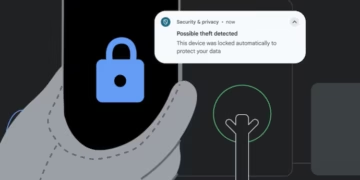The National Science Foundation’s (NSF) prestigious CAREER award has been bestowed upon Murphy Niu, an assistant professor at UC Santa Barbara’s Department of Physics. The NSF award, which is among the most highly sought after grants for young researchers, recognizes Niu’s commitment to advancing quantum computing innovation.
Niu, who joined the faculty at UCSB in 2018, is a rising star in the field of quantum computing. Her groundbreaking research has earned her numerous accolades and grants, including the NSF’s prestigious CAREER award.
With a passion for unraveling the mysteries of quantum computing, Niu’s work has the potential to revolutionize fields ranging from chemistry to machine learning. Her innovative approach to quantum computing has garnered attention from experts and funding agencies alike.
Overview
Assistant professors in the field of quantum information science are making significant advancements through support provided by the U.S. National Science Foundation, particularly under the Faculty Early Career Development Program (CAREER Award). This program is designed to recognize early-career faculty who demonstrate potential as academic role models and contributors to their respective fields. One area of focus is quantum research, which explores innovative methods to improve quantum computing technologies.
Quantum computing, which harnesses the principles of quantum mechanics, operates using qubits, representing information in a quantum state. Current quantum computers often fall into the intermediate-scale category, typically ranging from 100 to 100,000 qubits. These systems currently face challenges due to errors and noise in their operations. Researchers in quantum science are actively working to enhance both the robustness and programmability of these machines, allowing for more reliable performance in the short term.
Murphy Yuezhen Niu
Murphy Niu’s long-term research goal is to develop quantum computing paradigms in regard to how we program, control, characterize, measure, and error correct a large-scale quantum computer without paying the steep price of digitization towards real-world impacts. Niu applies cutting-edge deep reinforcement learning and generative models to quantum control, quantum circuit compilation, and quantum system learning using some of the largest quantum computers based on superconducting qubits. Her recent research focus on developing scalable analog quantum control and algorithms for emerging quantum architectures with superconducting, ion trap, photonic, and neutral atom qubits.
One noteworthy effort in the field involves approaches that go beyond gate-based quantum computing, which relies heavily on error correction and extra qubits. Alternative methodologies, such as analog simulation and quantum neural networks, aim to minimize computational overhead and accelerate scalability. These strategies integrate continuous analog dynamics with programmable digital controls, laying the groundwork for hybrid quantum-computing paradigms.
The integration of quantum devices, nanomaterials, and advanced engineering techniques plays a vital role in this research. Furthermore, the development of these technologies presents valuable opportunities for undergraduate and graduate students to participate in cutting-edge projects. Universities such as those within the College of Science and College of Engineering are fostering environments where quantum materials and quantum mechanics are analyzed to create more efficient systems.
Efforts like these promise to shape the next generation of quantum computing, providing the tools needed to solve complex problems while inspiring new avenues in quantum information and technology.
Frequently Asked Questions

What qualifications are required for applicants seeking NSF CAREER Awards?
Applicants must hold a tenure-track or equivalent position at an eligible institution. They should demonstrate potential for leadership in both research and education, presenting a compelling plan that integrates these elements effectively.
How does the NSF CAREER Award assist early-career quantum computing researchers?
The program provides financial resources and recognition to early-career investigators in quantum computing, fostering innovation and career development. This includes support for conducting cutting-edge research and integrating educational efforts to inspire future scientists.
What is the usual amount of funding awarded to researchers in quantum computing?
Grant amounts typically vary, but recipients in quantum computing often receive funding ranging in the hundreds of thousands of dollars, depending on the scale and requirements of the proposed project.
What is the funding duration for quantum computing research under the NSF CAREER Award?

The standard funding period for projects is five years, allowing researchers sufficient time to achieve their research and education goals outlined in their proposals.
Are researchers from all institutions eligible to apply for quantum computing-related CAREER Awards?
Applications are open to researchers at institutions that meet eligibility criteria set by the NSF. These institutions generally include accredited U.S.-based higher education institutions or related qualified organizations.
What reporting obligations do NSF CAREER Award recipients in quantum computing have?
Awardees are typically required to submit annual and final reports detailing their progress, outcomes of their research, and educational contributions. These reports help maintain accountability and ensure program goals are met.






































